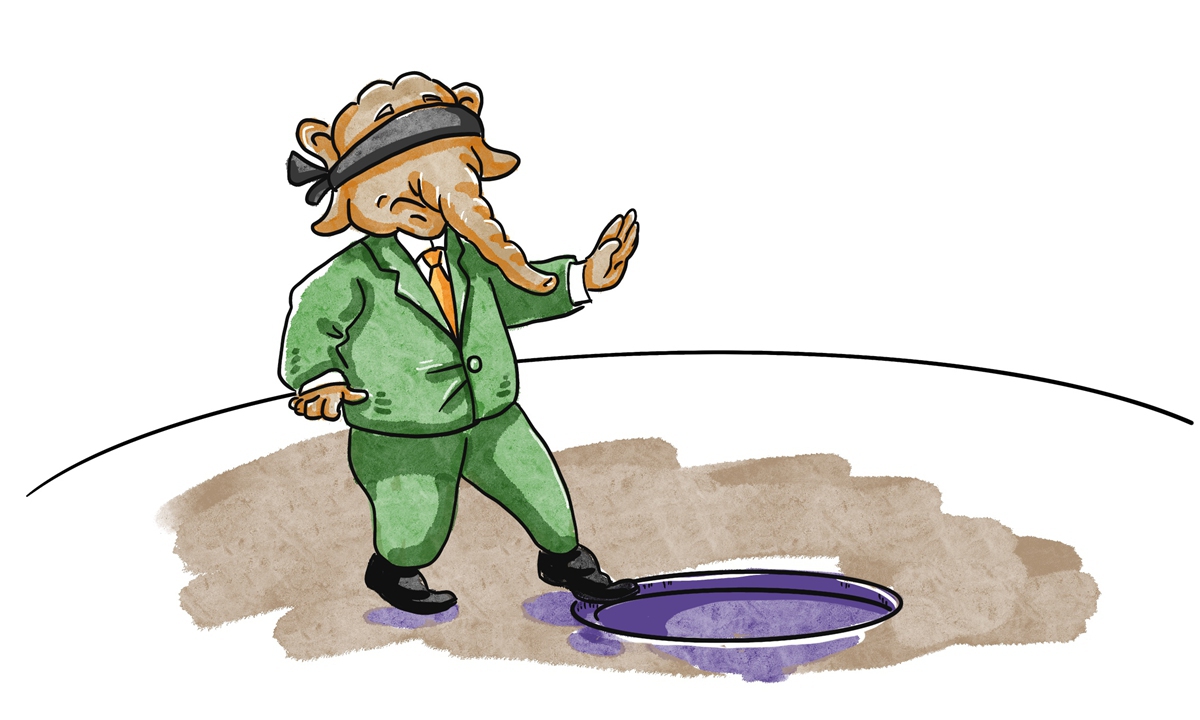India to invite trouble playing Taiwan card
By Long Xingchun Source: Global Times Published: 2020/10/18 9:42:42

China India Photo: GT
Amid the China-India frictions over the border issue and the intensifying China-US tensions, India seems to get addicted to playing the Taiwan card.
Several Indian media outlets ran advertisements beforehand to celebrate the island's "national" day that falls on October 10. India Today TV broadcast an interview with Taiwan's "Foreign Minister" Joseph Wu on Friday, which served as a platform for him to spread Taiwan secessionist voices.
This has triggered discussions in China on how to counter India's manoeuvre to play the Taiwan card.
The Taiwan question is not a card that India can exploit as a bargaining chip toward China over the border issue. India's recognition of the one-China principle and commitment not to support "Taiwan independence" forces have been reciprocated by China's promise not to support the separatist forces in India.
Taiwan secessionist forces and Indian separatists are in the same category. If India plays the Taiwan card, it should be aware that China can also play the Indian separatist card.
The India military said it has been preparing for a "two-and-a-half" front war, referring to Pakistan, China, and internal insurgencies. Internal insurgencies include secessionist forces and terrorists. If India takes the move to support "Taiwan independence," China has every reason to support separatist forces in Northeast Indian states such as Tripura, Meghalaya, Mizoram, Manipur, Assam and Nagaland. China could even support the resurrection of Sikkim.
The races in India's Northeast are different from those in mainland India. Some of the states belonged to an independent country or were not part of India and some were part of Myanmar before the British colonial rule (1858-1947). Only after Britain left India, these regions became part of Indian territory. But people in these states do not recognize themselves as Indians. They have always wanted to set up their own independent country and have been fighting for this. The most prominent is the Assam United Democratic Front.
These armed separatist factions in Northeast India have now been weak under the strong crackdown by the Indian military, but they have not been completely wiped out. Because of a lack of external support, they find it difficult to development and grow. But if there is support, it would empower them to launch insurgencies. They in fact have a very close connection with the armed forces in Northern Myanmar.
Though these separatist forces have requested for China's support, China did not respond to them given diplomatic principles and the friendship between China and India. China respects the territorial integrity of other countries. The recognition of each other's sovereignty and territorial integrity is the premise and basis of China-India diplomatic ties. But if India jeopardizes this basis, China has no reason to adhere to it either. If India supports secessionist forces in China and disregards China's sovereignty and territorial integrity, it should be aware of the consequences.
India playing the Taiwan card is impairing its own interests. Some Indian strategists, think tanks and media outlets are forcing China to take countermeasures. The Indian government has so far remained silent on the fire-playing by some Indians. If India's nationalists move forward by fanning the Taiwan flame, what awaits them will be insurgence and chaos in its northeast.
The author is a senior research fellow with the Academy of Regional and Global Governance at the Beijing Foreign Studies University and president of the Chengdu Institute of World Affairs. opinion@globaltimes.com.cn
Posted in: VIEWPOINT,ASIAN REVIEW